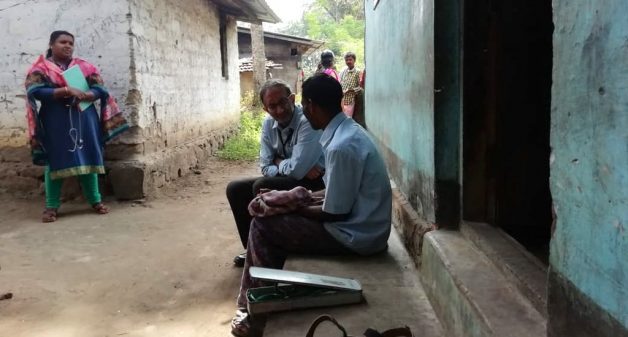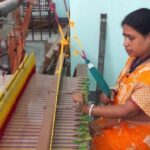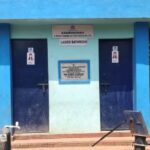“The stigma on mental disorders is still huge, and it should change. It is our responsibility to bring the mentally ill back to normalcy with care and compassion,” said Manoj Kumar T., a psychiatrist. “It’s our aim to take quality psychiatric care and treatment to the poor, including the homeless people.”
According to the latest Kerala State Mental Health Survey conducted by Institute of Mental Health And Neuro Science (IMHANS), 14.4% of people aged 18years and above have suffered psychiatric disorder once in their lifetime.
Though Kerala boasts of a better healthcare system, 0.44% of its population suffers from severe mental disorders. Another alarming point in the report is that suicide rate of the state is 12.6%, which is more than double the national rate of 6%. The survey indicates that the reach of government’s District Mental Health Program is not adequate.
Mental Health Action Trust (MHAT), a not-for-profit organization, fills the gap, through a community-based psychiatry initiative that treats patients for free, unites them with the family and helps them get back to normalcy.
Mental health awareness
“Functional impairment, where one cannot perform personal and professional life routine is called mental disorder,” Varsha Vinu, assistant professor, psychiatry, Calicut Medical College, told VillageSquare.in.
“In Kerala, especially in urban areas, mental health awareness is high and hence the detection rate. The government introduced District Mental Health Program (DMHP) in 2013 which conducts monthly consultation for the public,” said Vinu.

“We are the only state where the DMHP functions properly in all 14 districts. The program has reduced the tendency of being secretive about mental health disorders and the detection rate has increased,” said Harish. M. Tharayil, vice president, Indian Psychiatry Society, Kerala chapter.
“Consultation is regular, treatment is effective. The reach may not be sufficient, but it works well ,” Tharayil told VillageSquare.in. “Still there are many remote places where psychiatric treatments are still a distant dream.”
Community-based care
MHAT, started in 2008, with its headquarters at Kozhikode, endeavors to make mental health access possible even in the remote unreached areas. “Though this mental healthcare system is run by MHAT, it is a community-based, volunteer-led program,” Manoj Kumar, psychiatrist and founder of MHAT told VillageSquare.in.
“We cannot cure mental disorders with medicines alone; the patients need support from family and society,” said Manoj Kumar. “We provide medical and professional care. Palliative care network and other local partners support the patients and ensure consistent medication.”
In eight districts, MHAT has weekly outpatient clinics in 56 places on a regular basis. While the local partners identify patients in their locality who need treatment, and arrange for clinic facility, professionals from MHAT offer psychiatric support.
Many mental health camps are also organized in such a manner that the patients can collect medicines from the government Primary Health Centers (PHCs). Coordinating with the professionals, volunteers visit the patients at home as part of care and follow-up.
Effective treatment
Safiya, a Malappuram-based mental health worker, recollects identifying a woman in Ponnani with disorder symptoms and trying to get her to be treated. But whenever Safiya and her team tried to approach her, the woman threw stones at them.

After failing many times, they learnt that the well in her house was unusable and hence she faced water problems. When they ensured piped water supply through the panchayat, the lady became approachable. After continuous medication and follow-up, she returned to normal life.
A man, who had shut himself in a room for 28 years, spent his time sitting or lying on a plank. His mother was aged and all the four siblings also had different mental disorders. Volunteers arranged for regular food. They were able to make eye contact with him only after six months, but eventually succeeded in treating him.
Mental health among tribes
“We started a MHAT clinic in Ambalavayal, Wayanad 10 years ago. Since the tribal population of the district is high, naturally the number of tribal patients has also increased,” Sona. K. Narayanan, head of Psychiatry Social Work, MHAT, told VillageSquare.in.
The accredited social health activists (ASHAs) and others working among the tribes bring in many referrals. The staff observed that the patients would not come to the clinic regularly and the dropout rate was also high.
“Slowly the situation changed. Now we have seven clinics and we treat around 120 patients through home visits also, covering about 50 tribal colonies,” said Narayanan.
Mainstreaming patients
“MHAT has a well-knit action plan. Each patient has a caregiver either from the family or from the group of volunteers. The caregivers are the link between the patients and MHAT,” Ismail, a mental health worker, told VillageSquare.in.
“After detailed diagnosis, the doctor prescribes medicine and necessary treatments. Subsequently, the MHAT team makes a weekly visit either at the camp or at home,” said Ismail. “Daycare centers for cured patients help them socialize, and gain self-confidence and dignity. Many have been employed with the support of volunteers.”
According to a 2017 report from IMHANS, there are 1.2 psychiatrists for one lakh patients. The availability of clinical psychologists and psychiatric social workers is 0.62 and 0.04 respectively, for one lakh patients.
“In MHAT we are trying to fill this poor proportion of availability of mental health professionals by providing quality mental healthcare with the support of society,” said Manoj Kumar. “It works well.”
Chithra Ajith is a journalist based in Kozkikode, Kerala. Views are personal.








